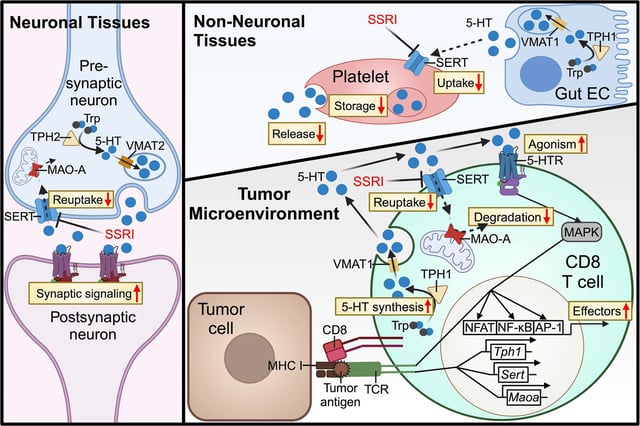Overview
- UCLA's study, published in *Cell*, demonstrates that selective serotonin reuptake inhibitors (SSRIs) significantly enhance killer T cell activity and suppress tumor growth in preclinical cancer models.
- SSRIs were shown to reduce average tumor size by more than 50% across melanoma, breast, prostate, colon, and bladder cancers in mouse and human cell studies.
- The combination of SSRIs with immune checkpoint blockade therapy achieved deeper tumor shrinkage and occasional complete remission in preclinical tests.
- UCLA researchers have filed a patent for the SSRI–checkpoint blockade combination and are designing clinical trials to test these findings in cancer patients.
- With SSRIs already widely prescribed and safely used, their repurposing for cancer treatment could provide a faster, more cost-effective path to improving immunotherapy outcomes.



